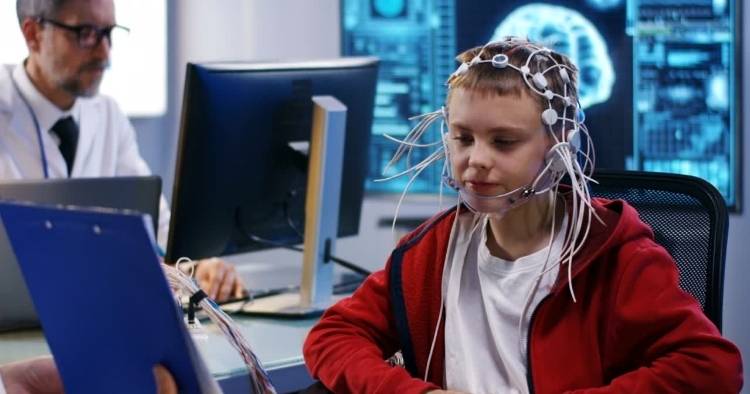Feeling stressed, anxious, or down? Your gut health might hold the key. For decades, the gut was seen solely as a digestive powerhouse. However, a hidden world of trillions of microbes thrives within it, and these tiny residents, known as the gut microbiome, might be whispering secrets to our brains. The emerging field of prebiotics for mental health explores how feeding these good gut bacteria with prebiotic-rich foods or supplements might influence our mood, stress levels, and overall mental wellbeing. By nurturing a healthy gut microbiome, we might be nurturing a happier and healthier mind.
In the bustling world of human health, a fascinating conversation is brewing – the one between our gut and our brain. For decades, the gut was primarily seen as a digestive workhorse, breaking down food and absorbing nutrients. But recent scientific breakthroughs have revealed a hidden world within our digestive system, teeming with trillions of microbes that comprise the gut microbiome. This newfound understanding has sparked a revolution, prompting researchers to explore the intricate dance between the gut and the brain, and how it impacts our mental wellbeing.
Unveiling the Microbiome: A Universe Within
The human gut microbiome is a complex ecosystem made up of trillions of bacteria, viruses, and fungi. These microscopic residents outnumber our human cells by ten to one, forming a unique and dynamic community. The composition of this gut microbiome is influenced by various factors, including diet, lifestyle, genetics, and even childbirth.
These gut microbes aren’t just passive passengers; they play a crucial role in various bodily functions. They aid digestion, extract nutrients from food, regulate the immune system, and even produce essential vitamins like K and B12. But perhaps the most groundbreaking discovery is the gut-brain axis, a bidirectional communication pathway between the gut and the central nervous system.
The Gut-Brain Axis: A Highway of Communication
The gut and the brain are in constant dialogue, exchanging information through a complex network of nerves, hormones, and immune messengers. Here’s a closer look at the key players in this fascinating conversation:
- The Vagus Nerve: This cranial nerve acts as a superhighway, carrying signals from the gut to the brain. It relays information about the gut’s health, including the types and abundance of microbes present.
- The Immune System: The gut is home to a large portion of the body’s immune cells. These cells constantly monitor the gut microbiome and send signals to the brain about potential threats or imbalances.
- The Gut Microbiota-Gut-Brain Axis (MGBA): This term encompasses the complex interplay between the gut microbes, the gut itself, and the brain. The gut microbiota produces various metabolites (byproducts of their metabolism) that can influence brain function and mood.
How Does the Gut Microbiome Affect Mental Wellbeing?
Research suggests that the composition of the gut microbiome can significantly impact our mental health. Here’s how:
- Neurotransmitter Production: The gut microbiota plays a crucial role in producing neurotransmitters like serotonin, dopamine, and GABA, which regulate mood, sleep, and cognition. An imbalanced gut microbiome can disrupt neurotransmitter production, leading to symptoms of anxiety, depression, and even cognitive decline.
- Inflammation: An unhealthy gut microbiome can trigger chronic low-grade inflammation, which has been linked to various mental health conditions, including depression and anxiety.
- Stress Response: The gut microbiome can influence the body’s stress response system. When the gut is out of balance, it can lead to a heightened stress response, further impacting mental wellbeing.
The Science Behind the Connection
Several studies have shed light on the gut-brain connection and its role in mental health. Here are a few compelling examples:
- Probiotics and Depression: A 2016 study published in “Translational Psychiatry” found that probiotic supplementation for eight weeks significantly reduced symptoms of depression in patients with major depressive disorder.
- Fecal Microbiota Transplants (FMT): This emerging therapy involves transplanting healthy gut bacteria from a donor into a recipient. Studies have shown promise in treating conditions like recurrent Clostridioides difficile (C. Diff) infection and even major depressive disorder.
- The Early Life Microbiome: Research suggests that the gut microbiome established in early life can have a lasting impact on mental health. Factors like birthing method and childhood diet can influence the composition of the gut microbiome, potentially impacting mental health risks later in life.
Cultivating a Happy Gut for a Healthy Mind
While research on the gut-brain connection is still evolving, there are steps you can take to nurture a healthy gut microbiome and potentially improve your mental wellbeing:
- Prioritize a Fiber-Rich Diet: Fiber acts as a prebiotic, feeding the beneficial bacteria in your gut. Aim to include plenty of fruits, vegetables, and whole grains in your diet.
- Consider Probiotic Supplements: Probiotics are live bacteria that can help replenish beneficial gut microbes. Talk to your doctor before taking any supplements.
- Manage Stress: Chronic stress can disrupt the gut microbiome. Practice relaxation techniques like yoga, meditation, or deep breathing to manage stress effectively.
- Get Enough Sleep: Sleep is crucial for overall health, including gut health. Aim for 7-8 hours of quality sleep each night.
- Limit Processed Foods: Processed foods are often high in sugar, unhealthy fats, and artificial additives, which can harm the


